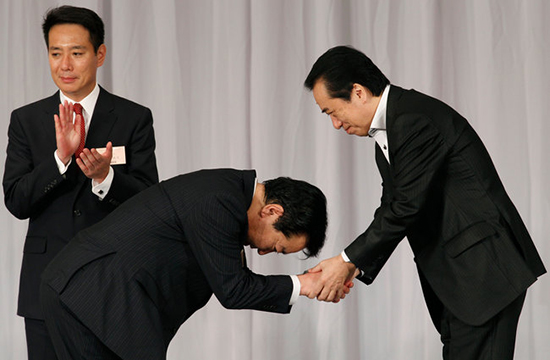
Let’s learn Japanese culture so different from Vietnam SOFL Japanese, what is the difference? Understanding this is really important especially for those who are wishing to study in Japan.
Although they have Asian culture, Vietnamese and Japanese culture have their own unique features. Vietnam and Japan are residents of Southeast Asia, the Vietnamese are of the southern Mongoloid race with two features: flat nose and big eyes, while the Japanese have the Mongoloid origin race. North nose high and big eyes.
Understanding and explaining these differences will partly help you intend to study in Japan to avoid cultural shock and to integrate into a new living environment.
Learning Japanese studying abroad
Cultural communication
The first difference is the culture of communication. Japanese people often use phrases like “thank you” and “apologize” when talking to others. This also surprised many first-time visitors to Japan. Meanwhile, Vietnamese people only say thank you when they receive a favor or help and only apologize when they feel that they have made others really annoying. Even apologizing does not have to happen to everyone and there are people who willfully evade apologies. According to them, those words bring feelings of shyness, distance and can lengthen the distance between them. Saying that does not mean that Vietnamese people never say “thank you”, “sorry”, but only in terms of level and scope of objects used.
Basic form of Japanese communication
Also with a mindset to avoid offending others, Japanese rarely say “no” to unfriendly people. Instead, they often talk limb, around and expect the other person to communicate. They do not express their feelings and thoughts clearly, but always keep them at a very vague limit. Therefore, it is not easy to know what the other person is thinking and feeling. For Vietnamese thinking, frankly speaking is the way to prove your honesty to the other person.
Culture on time
Punctuality is an opinion that most foreigners make when interacting with Japanese people. This we can easily see when comparing the train schedule with the actual time that the train arrives at the station, or when you have an appointment with the Japanese you will see them always coming first compared to appointment time is at least 5 minutes. Punctuality has become a deeply ingrained habit of each individual and gradually becomes an underground rule, a basic consciousness of the Japanese. They always avoid disturbing others, so being late for your appointment is considered impolite and damaging to others. Punctuality is the right thing to do in any situation.
Meanwhile, the sense of adhering to the principle of time in Vietnam seems to be underestimated. It’s normal to be 5 or 7 minutes late. And few people complain about it because it is ingrained in the Vietnamese lifestyle. And the attempt to change a behavior that is acceptable to the whole society doesn’t seem to matter much.
Work culture
The Japanese at work have a specific plan and always follow that plan to carry out the work, which helps them to be able to manage time in an easy way but if unfortunately the plan is changed. Unexpected change Japanese people will be very easy to be confused and difficult to make decisions.
Meanwhile, Vietnamese people are quite quick to adapt to change. However, a limitation in the way Vietnamese people work is that they do not have a well-prepared work, often tend to start work when the deadline is close. For example, with a job within 2 weeks of implementation, the Japanese will complete in the first week and the 2nd week will be devoted to editing and finishing the work. As for Vietnamese, they will not do it in the first week but do their best in the last week. Even if unexpected problems arise, they may be ready to stay up late to work.
Culture in the way of thinking of Japanese society
In Japan, women rarely go to work, especially after getting married, and even if they work, it is very difficult to get a high position like men. Although women have gone to work more recently, the number is still very low, with only 10% of Japanese women in charge, much lower than in other developed countries.
In Vietnam, women are often very independent and economically autonomous because they have their own careers. The proportion of Vietnamese women who go to work after marriage is very high and even those who work as managers or general directors are mostly married women.
It can be said that each country, every nation has different lifestyles, ways of thinking so that they have different cultures. It cannot be said that Japanese or Vietnamese culture is better because each culture has its own interesting and unique characteristics. Let us each try to live well to contribute to preserving and building a culture.